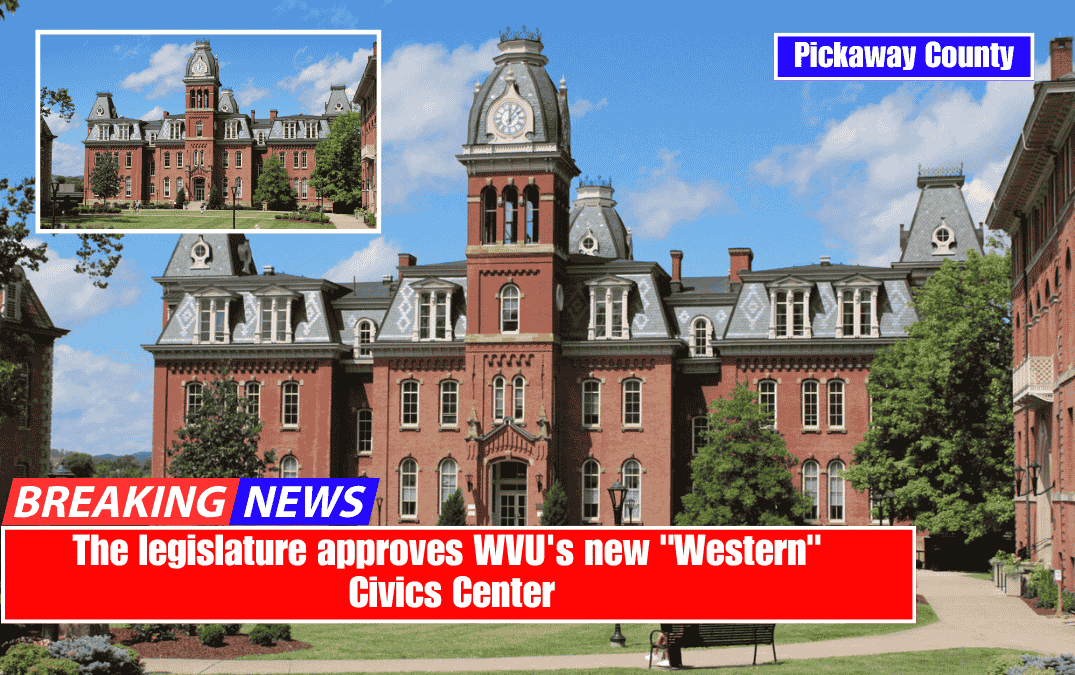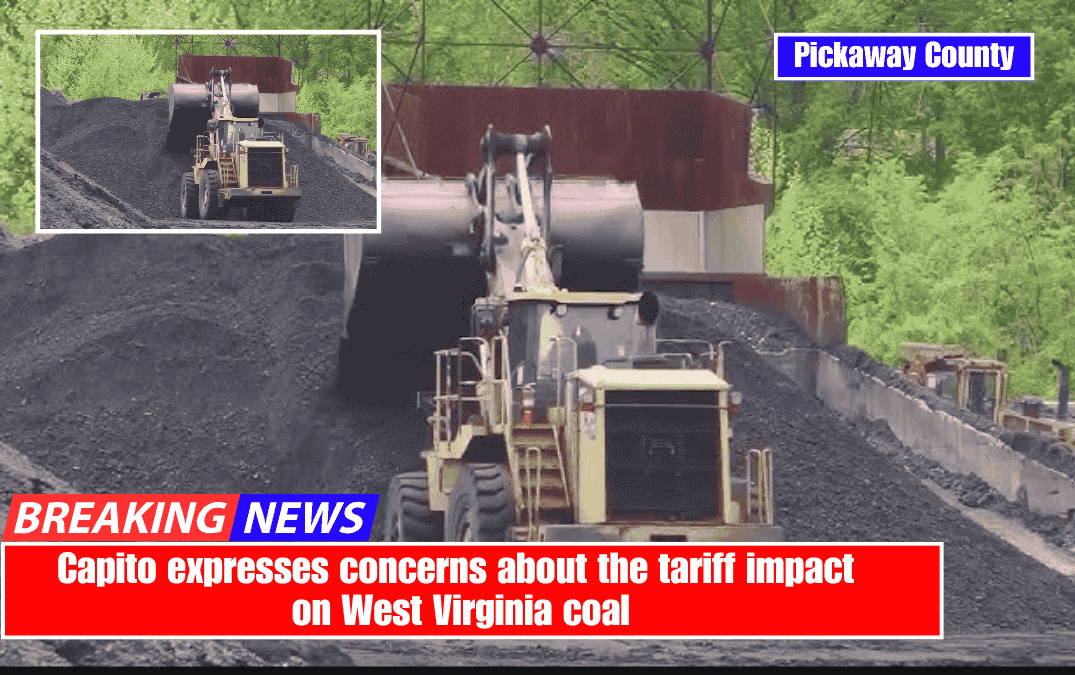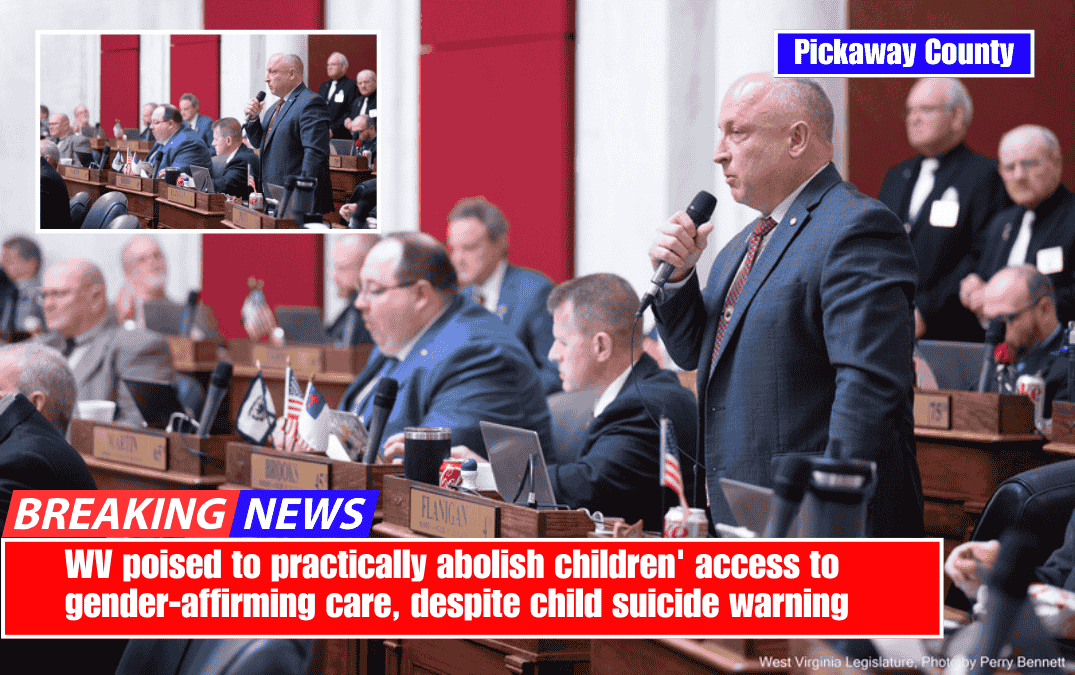If House Bill 2014 passes, microgrids might be developed near schools or neighborhoods. Despite being across the river, the John Amos E. Power Plant may be viewed from several houses in downtown Poca, West Virginia.
The West Virginia governor and lawmakers want to build coal and natural gas power facilities in your backyard.
They intend to deprive local governments of funding to do so.
They also want to expose you to air, water, and noise pollution in the process.
This week, the Senate is considering a bill backed by Gov. Patrick Morrisey that would give data center companies preferential treatment at the expense of everyone else. House Bill 2014 would allow data centers to apply for special status from the West Virginia Department of Commerce, exempting them from municipal rules.
I wrote in January about how the state is not ready for data centers, and this law reinforces what I argued then. Data centers consume a lot of electricity, whether from their own onsite microgrid, which this legislation encourages (but does not mandate), or by connecting to what we regard to be the standard grid.
The bill was scheduled for consideration in the Senate Economic Development Committee on Tuesday. County commissioners testified regarding the bill’s negative economic impact, which I’ll address later. However, West Virginia Coal Association President Chris Hamilton was asked to testify about the bill’s benefits to coal.
He stated that he hopes the measure will lead to “modular coal plants,” borrowing language from the nuclear industry’s hope for compact modular reactors.
According to the Coal Association, internet corporations like Google may not invest in experimental technology like modular coal plants due to low natural gas prices.
Again, I’ll point out that West Virginia’s electricity prices are high in part because the state relies on coal power, but other states have embraced gas and renewable energy. Even one of our utility providers has stated that it plans to switch coal facilities to natural gas. Of course, the Legislature wants to make it more difficult.
Regardless of whether modular coal plants exist, advocates of the bill want these data centers, and fossil fuel firms want the related microgrids.
The measure exempts data centers and their microgrids from all local government rules and eliminates the ability of all people of our separate municipalities to have input on permission or siting.
Close to an elementary school? Too awful.
Do you prefer fresh food from a local farm? I hope you don’t mind if it’s adjacent to a natural gas or coal plant.
What about the view of the mountains? It will look good if you don’t mind the smoke stacks.
I’m not just making up an example. Just last month, someone applied to establish a natural gas factory in Tucker County, near Davis and Thomas. The application does not specify that it will power a data center, but I believe you can read between the lines.
The permission states that it would not connect to the grid and will instead deliver power to users on-site. The company’s name is Fundamental Data.
This gas plant and data center will be only a few kilometers from the nearest school and households. It’s also only a few kilometers from the small but active villages of Davis and Thomas, both national tourist draws. Do gas plants require microgrids and data centers?
If the governor gets his way, local governments may lose control over such choices.
Every day, data centers use hundreds of thousands, if not millions, of gallons of water. The governor specifically mentions water when he claims West Virginia’s natural resources will fuel data centers.
I inquire: whose water? Why would we allow Amazon, Google, Facebook, or any other technology firm unrestricted access to our groundwater, which many West Virginians rely on for drinking water? West Virginians in Southern West Virginia and around the state have been requesting clean water for as long as we can remember.
In another example of attempting to profit from our state’s resources, a water bottling business in Jefferson County was recently blocked due to municipal zoning and strong public resistance. This measure eliminates the opportunity to protect your community’s water from data centers.
Some municipal governments have expressed concerns about the loss of local control. They’ve also expressed concern about the loss of tax income if the law passes. The West Virginia Center of Budget and Policy issued a piece this week, which I will outline below.
Under this plan, counties would benefit if any industry other than a data center purchased and erected a facility on land within the country’s borders. That’s because once a data center is established, practically all of the tax income will go to the state coffers.
In the new Davis and Thomas data center scenario, Tucker County might lose approximately $8 million in tax revenue if the land was used for a data center instead of almost anything else. That revenue still remains. It does not go to the local government, emergency services, police, or schools. Instead, money would be allocated to a new “Personal Income Tax Reduction Fund” and “Electric Grid Stabilization and Security Fund.”
To put it another way, the local school funding would be used to eliminate the income tax on the wealthy. WVCBP has previously said that income tax cuts provide limited benefits to those earning less than $65,000 per year. Meanwhile, those at the top benefit the most. This measure proposes using local school money to fund tax cuts for the state’s wealthiest residents.
The other new fund aims to address grid stability, and supporters claim it would keep the state’s electric prices low. However, it is vital to note that this is a subsidy—a gift to bail out our utilities’ coal power plants, which simply cannot compete in the free market. It may mitigate future bill rises owing to expensive coal-fired power if enough revenue is successfully taken from local governments, but it will not lower bills.
Other elements in the data center bill urge utilities to rely more heavily on coal. That is consistent with previous proposals introduced this session that want a coal “renaissance” and make it more difficult for utilities to transition to a source other than coal, even if it is more cost-effective to do so.
It appears that our elected authorities are determined to mandate coal use, regardless of the budgetary or environmental cost to West Virginians, in order to assure that coal barons continue to prosper.
It’s difficult to keep up with everything going on at the state and federal levels right now. But this is what I can say.
Our Republican-dominated Legislature and governor want to deprive local governments of the tax income that pays for courts, police, EMS, firefighters, and schools. They want to eliminate the possibility of somebody saying anything doesn’t belong here or that it makes too much noise for someone to sleep at night. To accomplish this, they want to grant tax breaks to the wealthy as well as sweetheart deals to billion-dollar firms.
That does not seem like small government for the people to me.















